Shashikala Dagade, Bavdhan Budruk, Pune
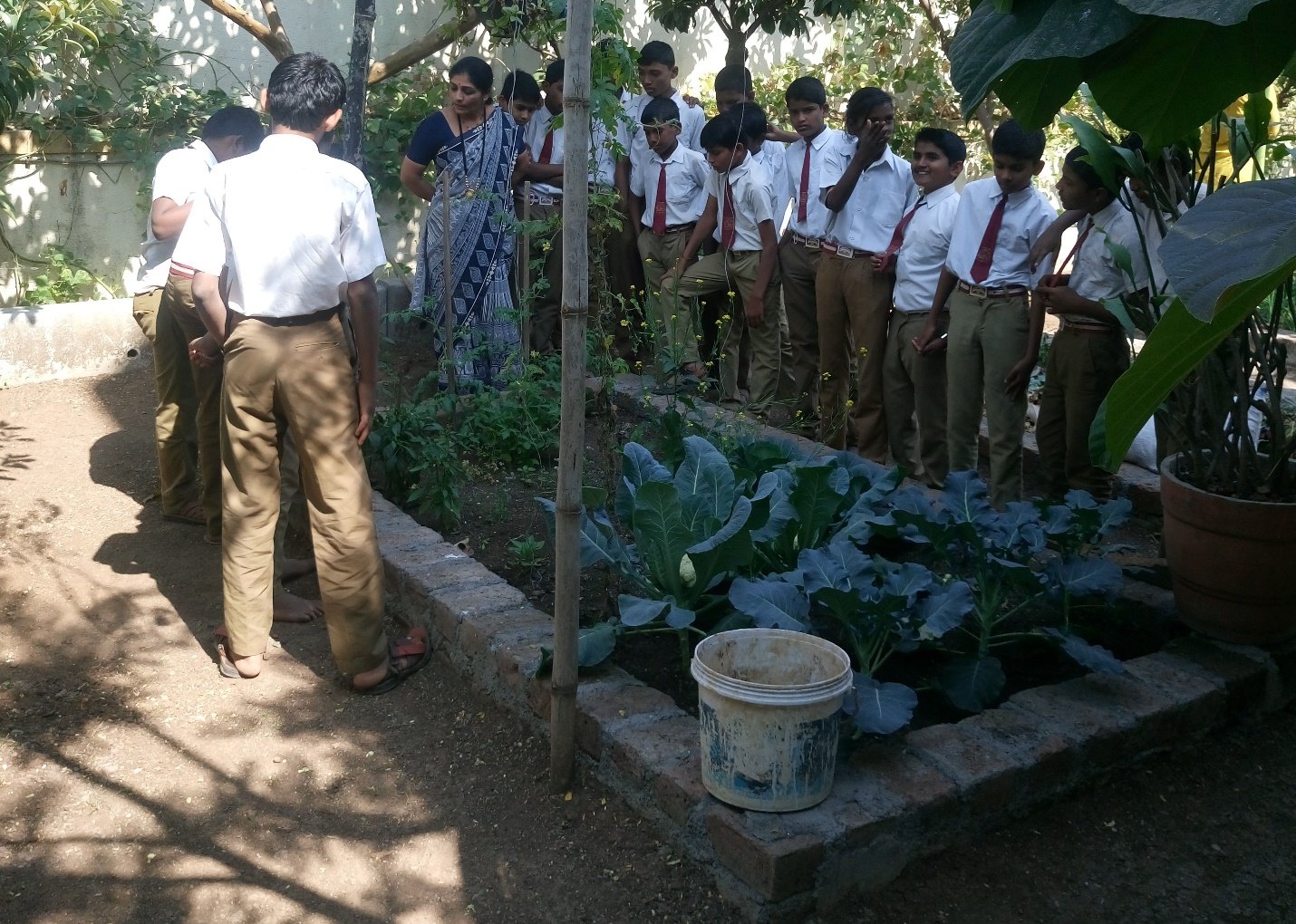
Here is why and how Shashikala tai started garden
Coming from a farming family, gardening came to Shahsikala tai naturally. She, before marriage used to live in a village named Paud, on the outskirts of Pune city, where her family cultivates seasonal crops. She later shifted to Bavdhan, again a small village near Pune. Now she stays in the area of Bavdhan which now has almost become a suburb of this ever-growing city.
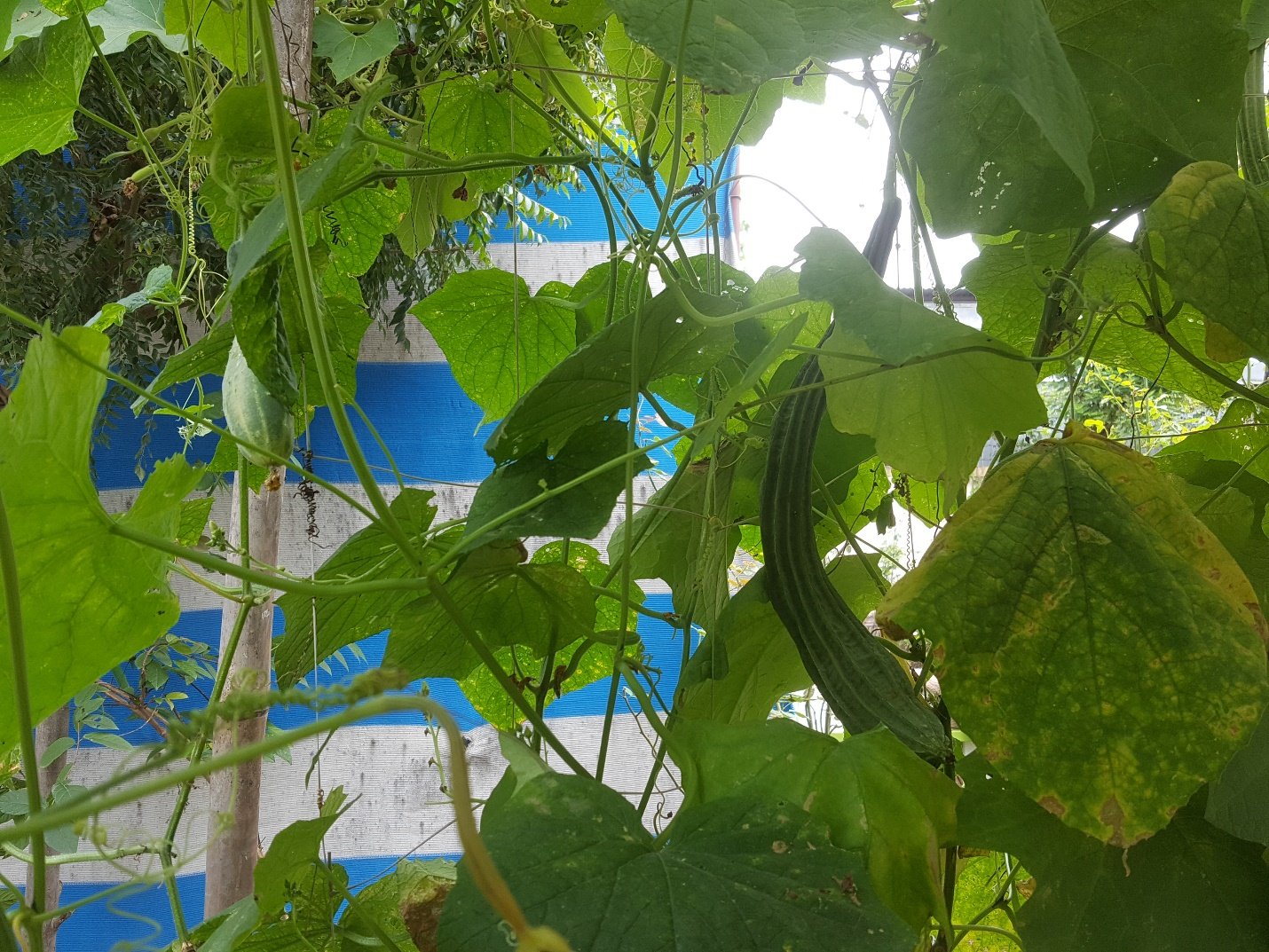
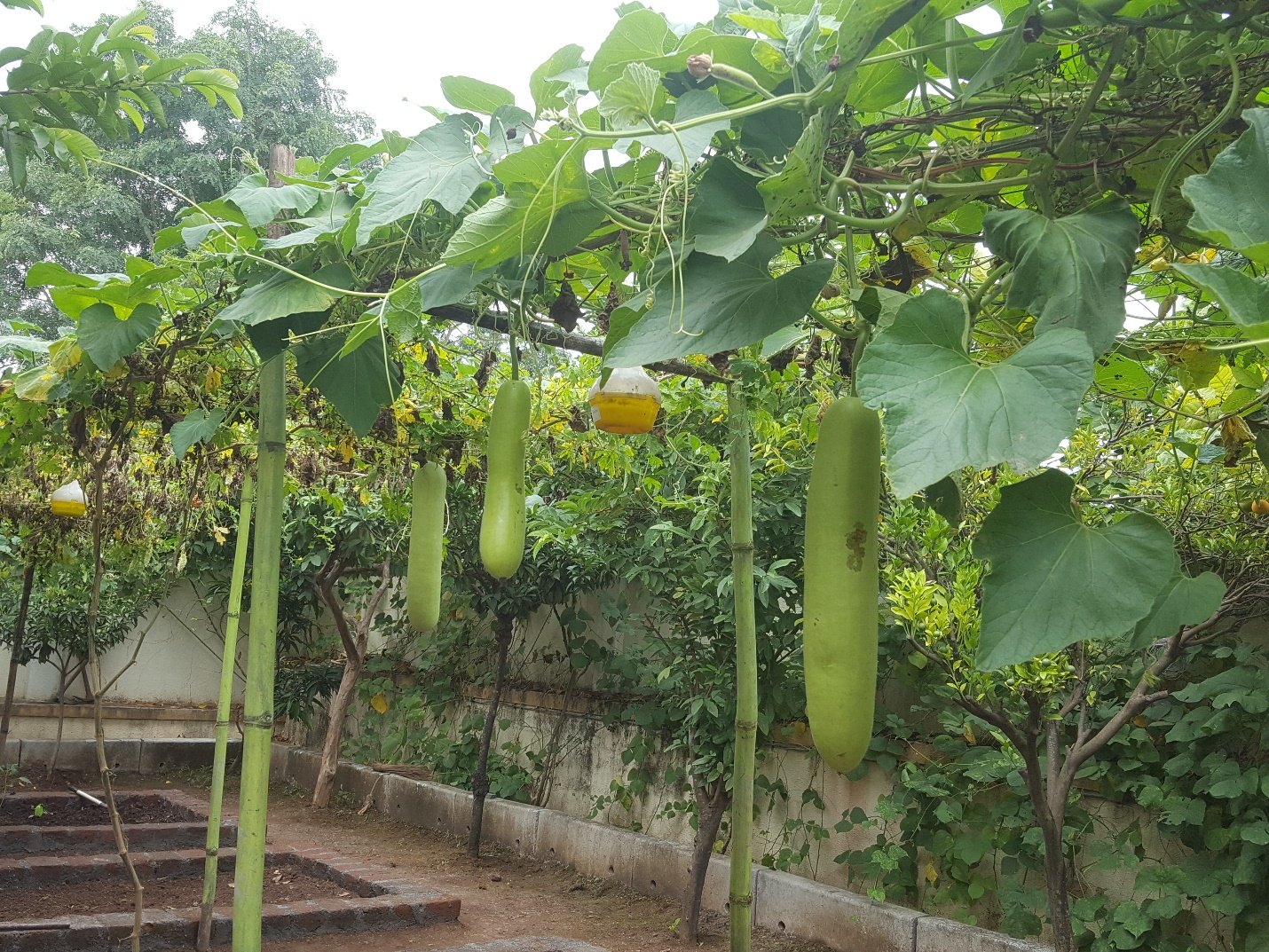
“Everybody should compost” says Shashikala tai. All the wet waste from her house is consumed in her garden. She also composts paper, card board. Even dust from daily sweeping goes in the compost. So, hers is almost a zero-waste home.
She feels bad that now-a-days kids in urban areas have lost connection with nature. Kids should be shown leaves, flowers of vegetables we eat, she believes. “Don’t make kids into machines”, Shashikala tai, mother of 3 advises other parents.
At her house, they do not have any domestic help or a gardener. Whole family works in the garden. When kids cultivate vegetables, they automatically understand the hard work required to get produce and hence value the food, they learn patience.
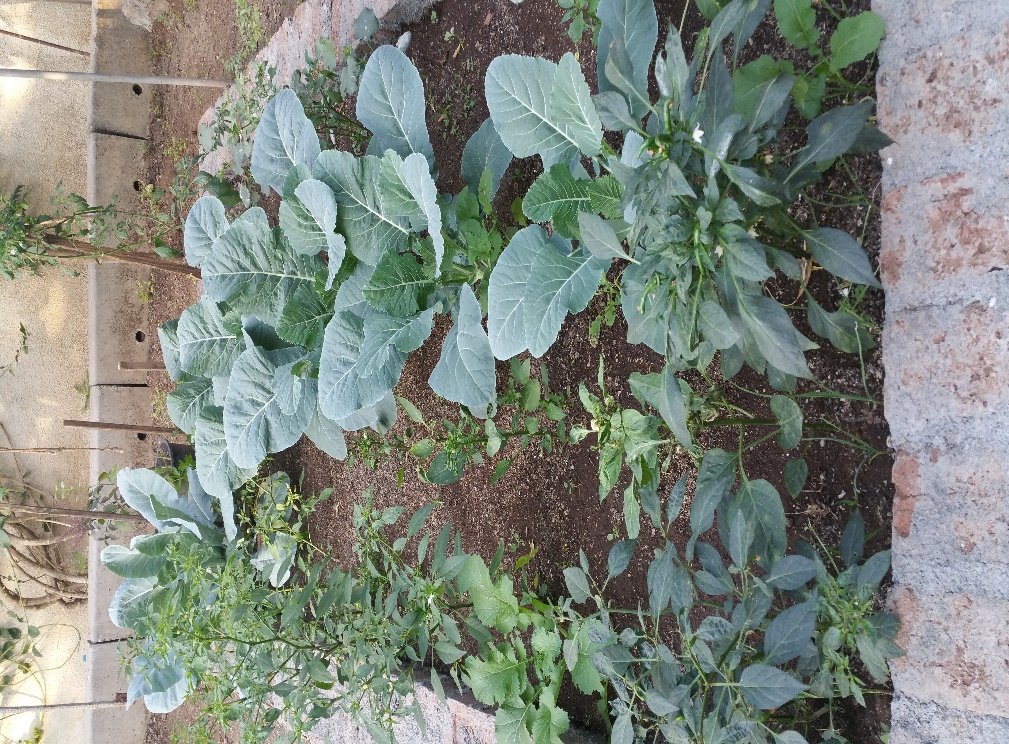
She has garden on the terrace as well as on the ground. Her terrace garden is entirely soil-less, cultivated on compost from kitchen waste and dry leaves. She calls is Gold from the Waste.
She feels humans are the shabbiest animals on this planet. We created concept of waste, she adds.
Insects help keep soil healthy, help in composting process. With her gardening efforts, she has closely observed them. She suggests, that there should be change in perception towards these little helpers.
Dump yards are not the solution. Load of wet waste should be taken off municipal waste collection. Leaves that fall by roadside should be composted by setting up composter at every kilometer. Institutions and organisations with large campus should compost their own leaves.
She focuses more on reusing material than buying new planters.
She admits, compared to the city, convincing people and implementing a project is easier on a village-level where everybody knows everybody. One person with vision can make a lot of difference.
Connection to the soil is vital; we should conserve it, she adds.
Waterproofing
Inbuilt water proofing of the house has proved enough. She has not experienced any leakage problem due to terrace garden.
She has designed a unique system to reuse rainwater. A bottle is attached to the pipe that outlets water from the terrace. Pipe attached to the bottle, is let out in the plant bed. Thus, rain water is gets harvested efficiently, without any sophisticated technology.

Planning
Like any other project, deciding objective is necessary for terrace garden. Here we do not have acres and acres of land at disposal. Hence to get maximum out of a few hundred sq. feet, we need to decide exactly what we wish to cultivate.
Shashikala tai created garden so that her family would get toxin-free, home-grown vegetables, fruits and flowers.
It is vital to observe which area gets sunlight, and accordingly planting should be done.
Preparation
Her terrace garden is soil-less. Soil is formed with erosion of rocks. Many minerals from the parent material are present in the soil. When we create soil-less gardens, do we miss out on these minerals? Answer is yes. Challenge is that we do not know exactly what we might be missing and what we are depriving the plant of.
What is the solution? Shashikala tai has devised a method. While filling the pot with the compost, she puts an iron nail, shells of egg to provide iron and calcium respectively.

How does she prepare compost?
Shahikala tai uses compost made from dry leaves and kitchen waste. Jeevamrut is used to provide microbes, which also speeds up the decomposing process.
For large plant beds on the ground, dry leaves and kitchen waste is directly deposited there and in-situ composting is done.
For containers, she prepares compost in tumbler composter and then adds it to the pots.
Where to get dry leaves?
In tropical regions, deciduous trees shed leaves in winter. Leaf fall starts around November and continues till June. Dry leaves is challenge for people. Often dry leaves are burnt since that seems a convenient option. At the same time, there are people like Shashikala tai, who need dry leaves for compost.
Why not bring “availability” and “requirement” together? (For details about this initiative, www.brownleaf.org)
Regular Care
Since Shashikala tai does everything herself, she can spot problems early and rectify the same. A plant communicates deficiency, problems in its own way, through various indicators. We should be observant enough to understand it.
Watering
Mulching helps soil retain moisture and thus water is conserved. Let leaves that fall in the plant bed be. Don’t sweep them off. To read more about mulching, do read our blog, https://brownleaf.org/mulch/
Produce from terrace garden
Vegetables
Brinjal, Chilies, Beans, Ridge Gourd, Drum Sticks, Taro, Sweet Potato, Tomatoes, Cabbage, Bottle Gourd, Onion leaves, Mustard Seeds

A bottle is reused as a container to grow radish
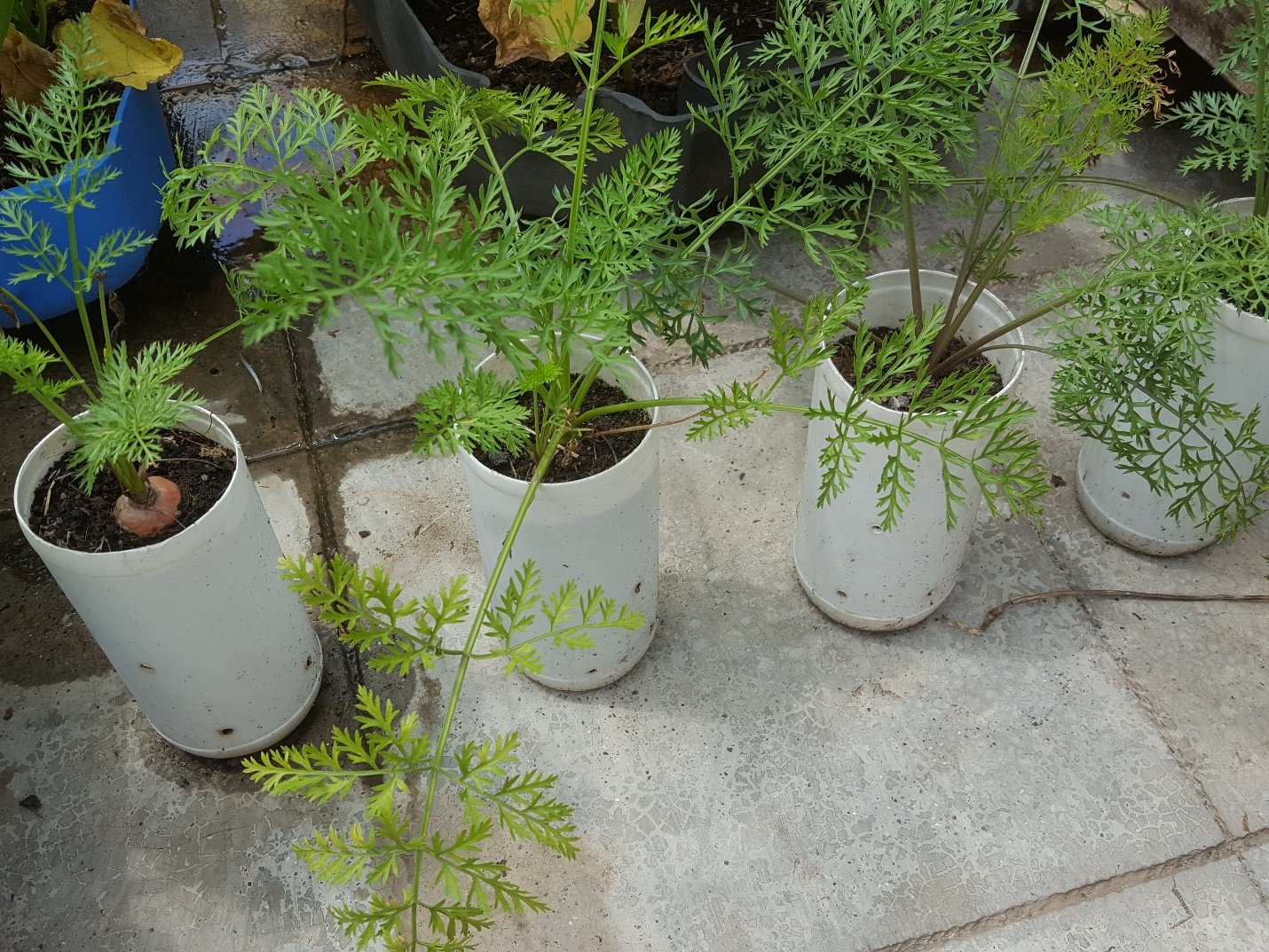
Carrots happily growing in their bottle containers
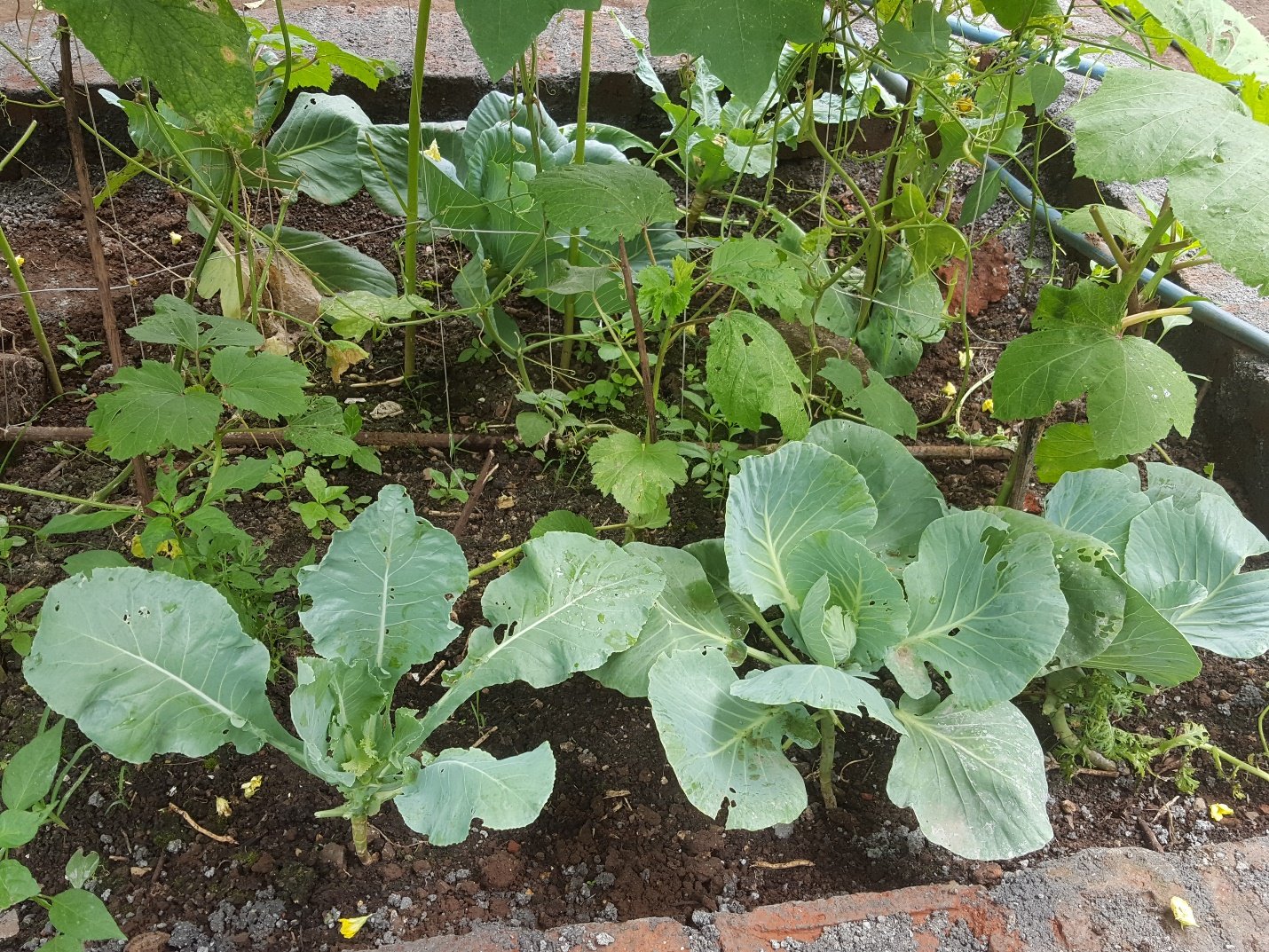
Fruits
Guava, Papaya, Banana, Singapore Cherry, Mulberry, Cherry, Coconut, Mango, Amla, Passion Fruit
Flowers
Anthurium, Water Lily, Parijatak, Anant, Balsm, Vinka, Rose, Magnolia, Hibiscus and many more

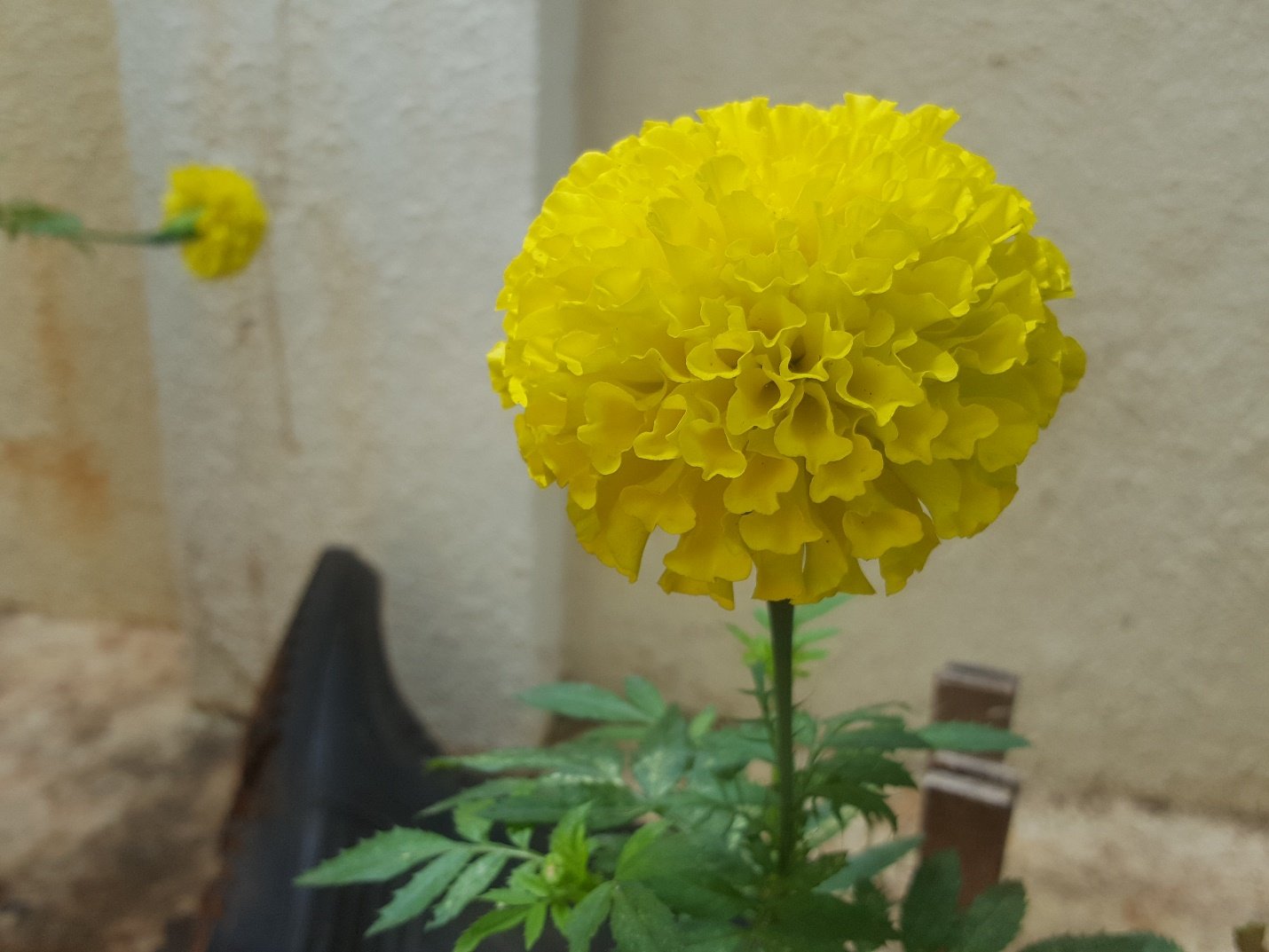
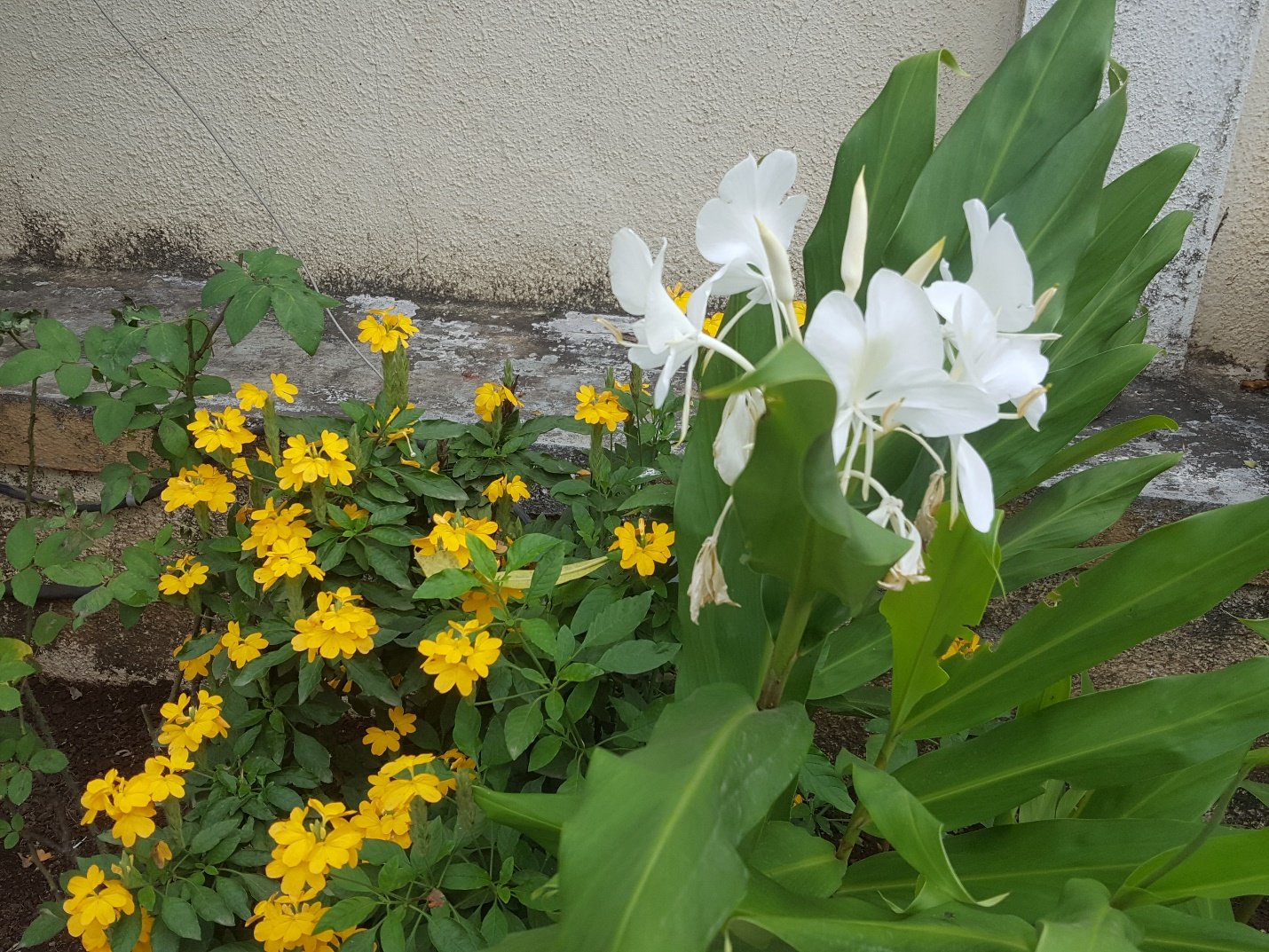
Snakes, lizards are common.
Birds like bulbul, munia, sparrow, kingfisher, myna, waterhen, tailor bird, sunbird are common visitors and some of them even build nest in the garden. Thus, her garden not only provides fresh food to her family, but also provides a habitat for numerous birds, butterflies and animals.
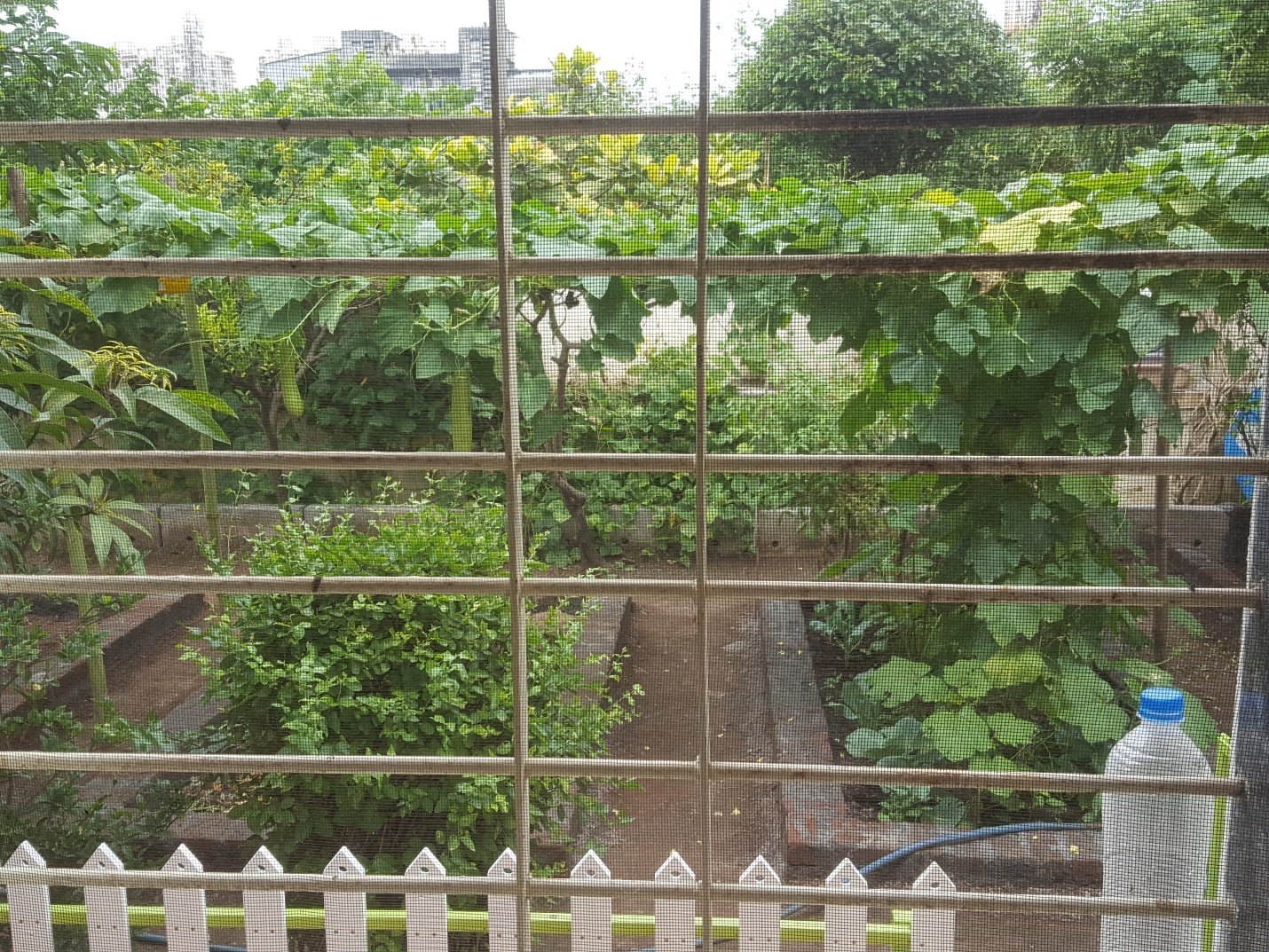
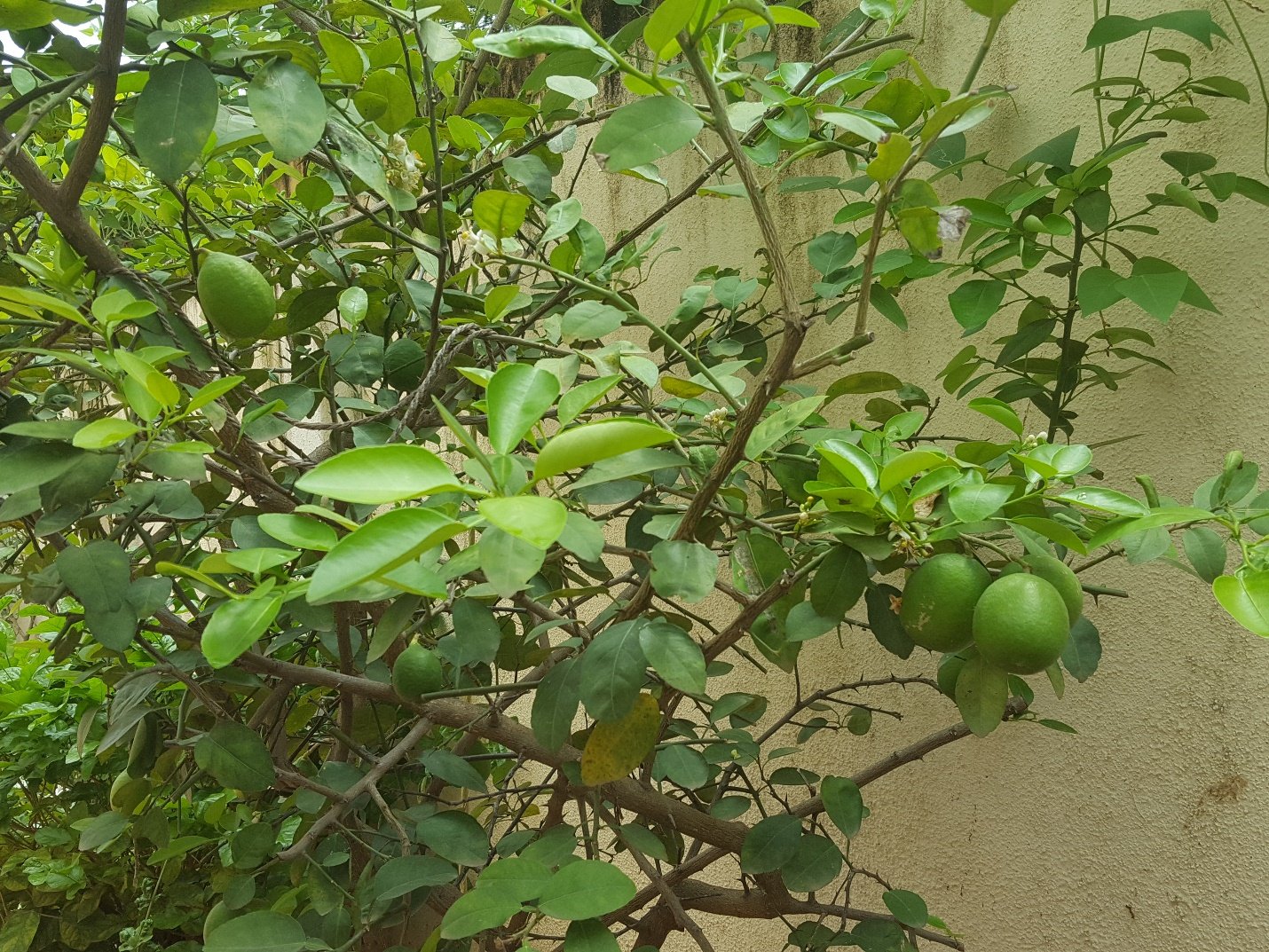
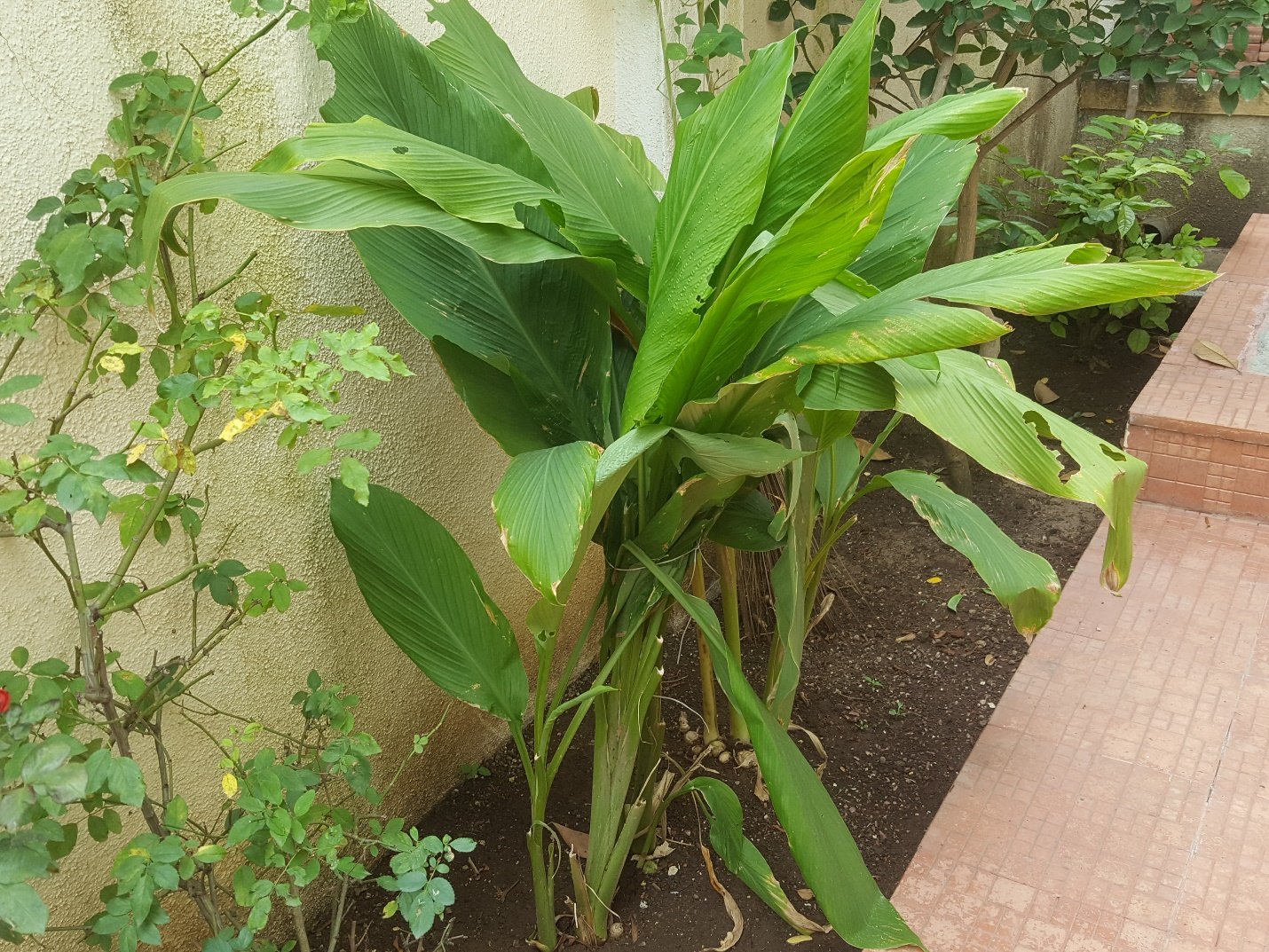
turmeric
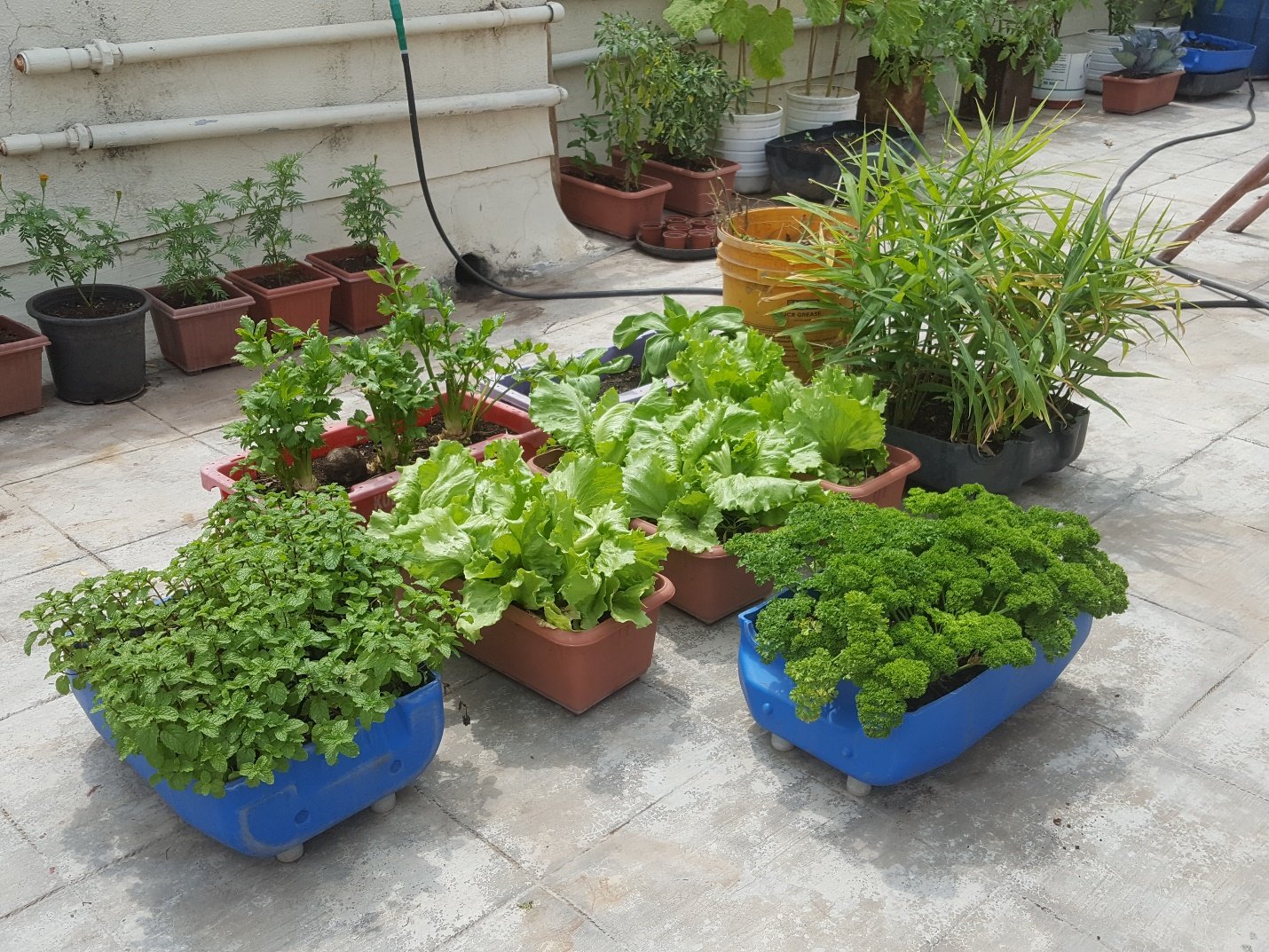
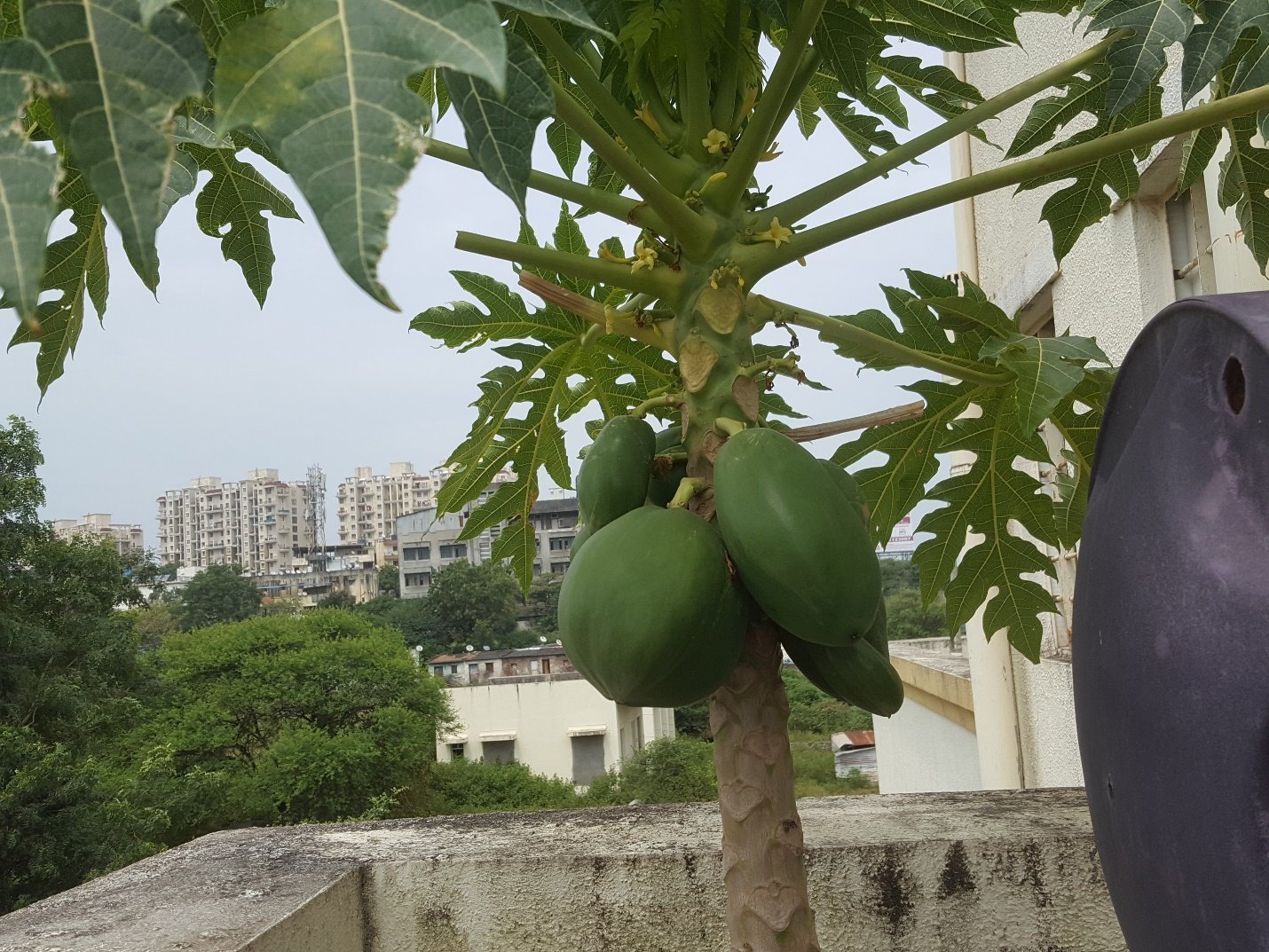
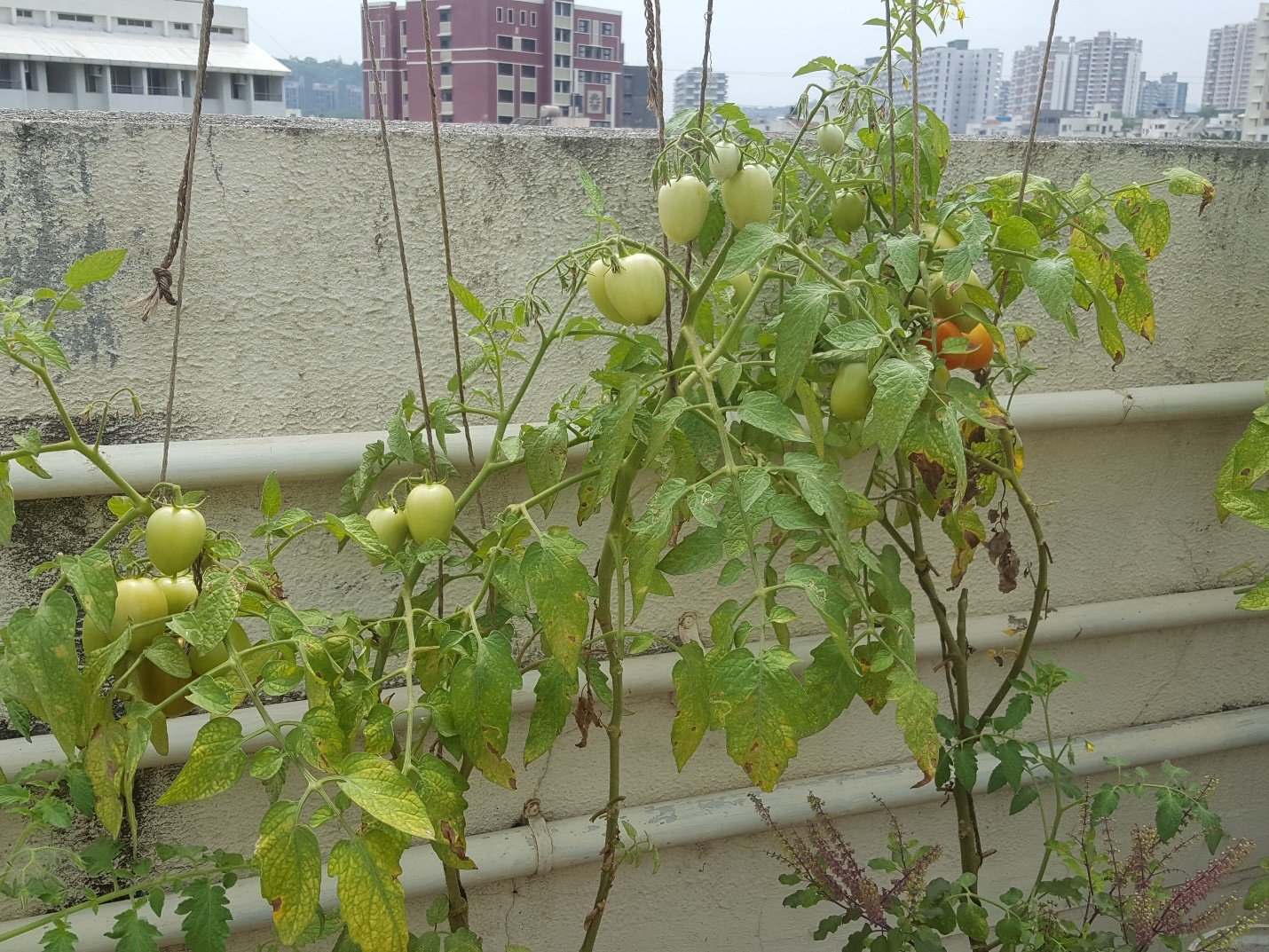
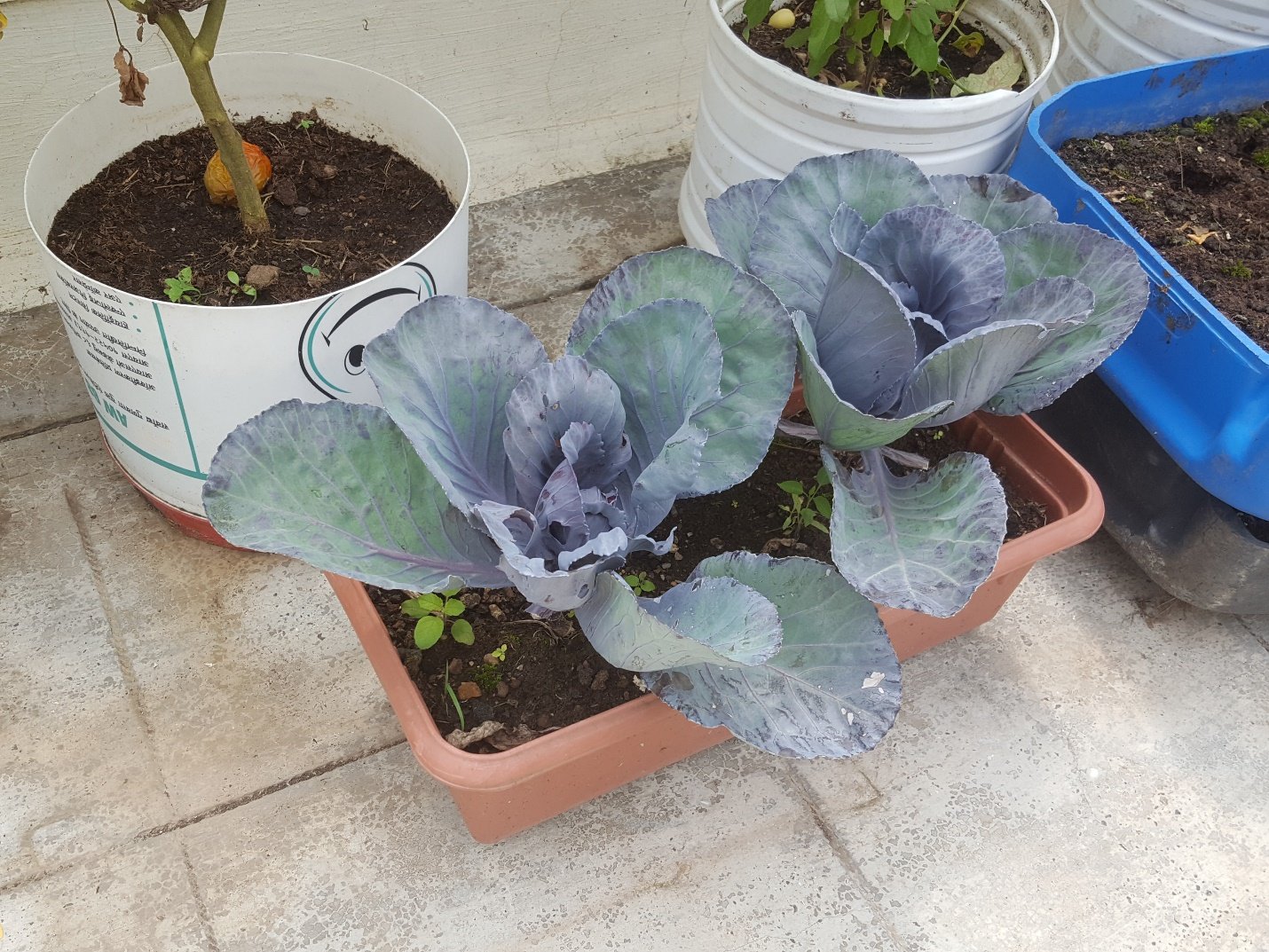
Concluding Words
Her efforts are not limited to her garden. Recently, she helped two women setup terrace gardens. Now both are using dry leaves from the society and kitchen waste form house in the garden, thereby reducing load on municipal waste collection and spreading awareness further.
Her ambition is to set up composting project for her village and compost entire quantity of nirmalya from the village temple. Her idea is to setup a chain, where nirmalya i.e. flowers offered to god are composted and flowers are cultivated on that very compost, which are offered to god.
In near future, she wants to help a nearby school setup a garden by involving students in the project.
We wish all the very best to Shashikala tai in all the endeavors and hope she continues inspiring all.
Meet Shahsikala tai.
“Everybody should compost” says she. All the wet waste from her house is consumed in her garden. She also composts paper, card board. Even dust from daily sweeping goes in the compost. So, hers is almost a zero-waste home.



Inspiring indeed… I have started composting for 3 years now.. With trial and error, now we get good compost… Tried to grow veggies but didn’t work…
Very useful info …. The article is an inspiration to many enthusiasts
May I get her contact No?
Would wish to visit her place & seek her for natural seeds.
Kedar(Hadapsar)